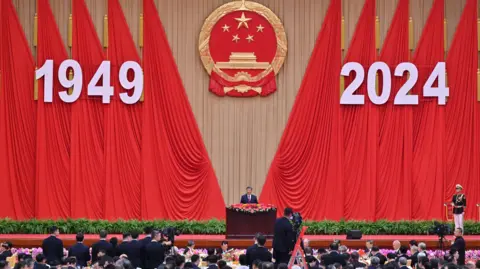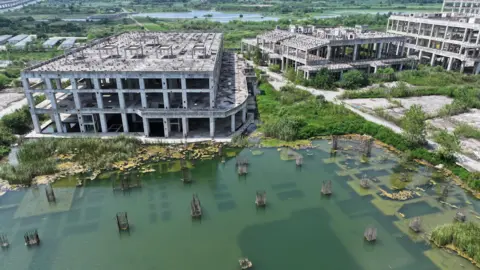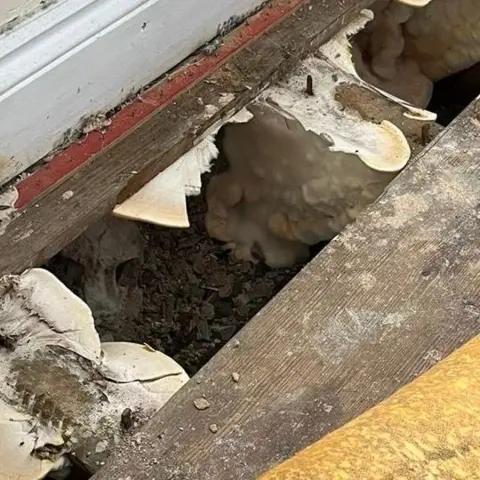A strike that closed US east and Gulf coast ports will be suspended after the dockworkers’ union and the group representing ocean carriers reached an agreement on Thursday, averting for now a costly blow to the economy ahead of the presidential election.
The agreement extends the International Longshoremen’s Association’s employment contract, which had expired, until January 15. It will allow them to return to work for the first time in three days, the union and the shipping lines’ group said in a joint statement.
Negotiations, which had been at an “impasse” over wages and automation for months, would now continue, the statement said.
The work stoppage, which started on Tuesday, had threatened to upend the US economy by snarling global supply chains and halting imports of fresh foods, pharmaceuticals and other consumer goods. JPMorgan analysts estimated that it could cost the US economy as much as $4.5bn a day.
The three dozen affected ports span from Maine to Texas and together handle one-quarter of the country’s annual international trade, worth $3tn, per a Conference Board analysis.
US President Joe Biden congratulated the union and the United States Maritime Alliance (USMX), which represents the carriers, on the deal, saying in a statement that it “represents critical progress towards a strong contract”.
Frustration over the economic fallout of the strike, compounded by fears over how product shortages could delay relief efforts for states devastated by Hurricane Helene, had opened up a new line of attack on Biden and vice-president Kamala Harris, the Democratic candidate, ahead of the November 5 election.
Donald Trump, the former president and Republican nominee, claimed earlier this week the work stoppage “would never have happened” had he been in the White House.
Business leaders had also criticised Biden’s approach to the strike, repeatedly asking him to invoke a federal law that would temporarily force the longshoremen to resume loading and unloading container ships. Biden said he wanted the groups to come to an agreement on their own.
A coalition of 272 trade groups representing retailers, farmers, restaurants, meat processors, truckers and other industries had called the work stoppage a “dire situation” on Wednesday, with “massive negative ramifications for our industries and the economy”.
It threatened the import of consumer items from bananas to coffee to clothing. Some Americans even began panic buying and hoarding toilet paper, prompting a trade group that represents paper manufacturers to issue a statement saying it did not expect the strike to have an impact on supply. An estimated 85 per cent of such products are manufactured in the US, the American Forest and Paper Association says.
ILA leaders told picketing workers the deal that included a 62 per cent raise over the six-year term of the contract. ILA members earned between $20-$39 an hour under the old contract — with overtime pay that pushed a third of New York-based workers’ annual earnings above $200,000 during fiscal year 2019-2020.
They are also fighting the adoption of port robotics that they say could eliminate jobs. Ports in the Netherlands and Australia are already primarily operated by remote-controlled cranes, employing few human workers.












































































































































You must be logged in to post a comment Login